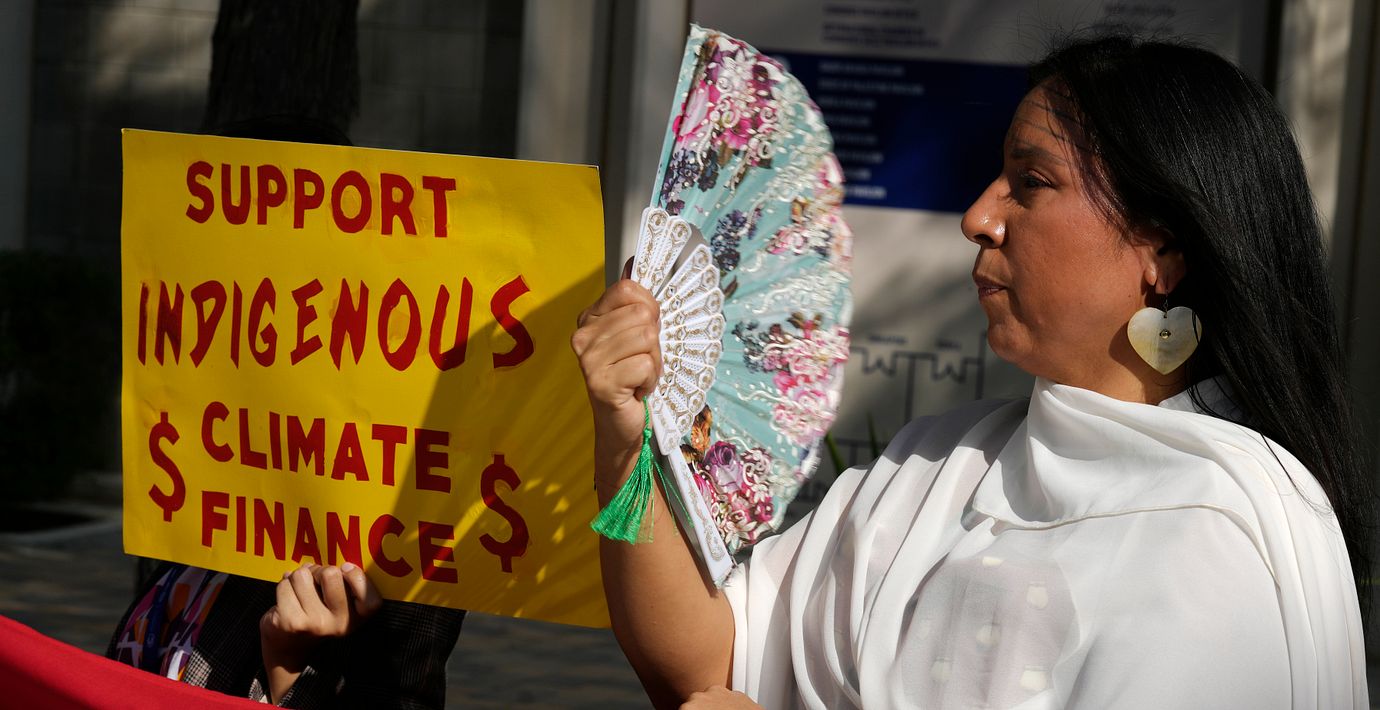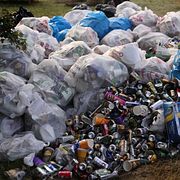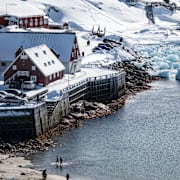
Aktivister vittnar om skrämseltaktik på COP28
Klimat- och människorättsaktivister, samt representanter från ursprungsfolk, upplever ett ökat hot från regeringar och fossila bränsleindustrier. Det rapporterar The Guardian.
Skrämseltaktik användes bland annat under COP28, enligt Lola García-Alix på människorättsorganisationen IWGIA.
– Fräckheten sprider sig till internationella forum [...] regeringar känner att de kan göra som de vill utan några konsekvenser, säger García-Alix.
Aktivister vittnar bland annat om att de – under klimattoppmötet – utan förklaring stoppats från vissa evenemang och filmats av personer med kopplingar till branscher för fossila bränslen.
bakgrund
COP28
Wikipedia (en)
The 2023 United Nations Climate Change Conference or Conference of the Parties of the UNFCCC, more commonly known as COP28, was the 28th United Nations Climate Change conference, held from 30 November to 13 December at Expo City, Dubai, United Arab Emirates. The COP conference has been held annually (except 2020 due to the COVID-19 pandemic) since the first UN climate agreement in 1992. The event is intended for governments to agree on policies to limit global temperature rises and adapt to impacts associated with climate change.The conference was orginally scheduled to end on 12 December, but had to be extended following Saudi objections on the final agreement. On 13 December, the conference president, Sultan Al Jaber announced that a final compromise agreement between the countries involved had been reached. The deal commits all signatory countries to move away from carbon energy sources "in a just, orderly and equitable manner" to mitigate the worst effects of climate change, and reach net zero by 2050. The global pact was the first in the history of COP summits to explicitly mention the need to shift away from every type of fossil fuels, but it still received widespread criticism due to the lack of a clear commitment to either fossil fuel phase-out or phase-down. China and India did not sign the pledge to triple their output of renewable energy and committed to coal power instead.The conference was widely criticised for its controversial president Sultan Al Jaber, as well as its host country, the UAE, which is known for its opaque environmental record and role as a major producer of fossil fuels. Al Jaber is the CEO of the Abu Dhabi National Oil Company (ADNOC), leading to concerns over conflict of interest. Claims of greenwashing of Al Jaber on Wikipedia, Twitter, and Medium; the legal inability to criticise Emirati corporations in the UAE; alleged covert access to conference emails by ADNOC; and the invitation of Syrian President Bashar Al-Assad have all raised concerns regarding the integrity of the conference. Al Jaber stated before the beginning of the conference that there was "no science" behind fossil fuel phase-out in achieving 1.5 °C; and leaked documents appeared to show the UAE planned to use the conference to strike new fossil fuel deals with other nations. Al Jaber claimed that his comments on the phase out of fossil fuels were "misinterpreted" and denied the latter allegation, asserting that the UAE does not need the COP presidency to establish business deals.
Omni är politiskt obundna och oberoende. Vi strävar efter att ge fler perspektiv på nyheterna. Har du frågor eller synpunkter kring vår rapportering? Kontakta redaktionen



